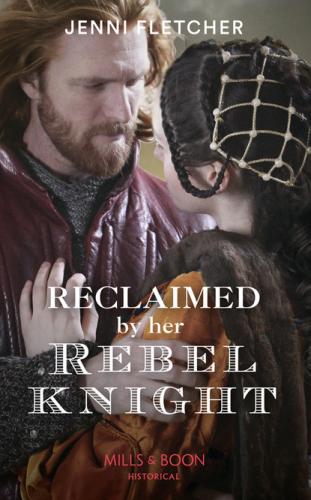In the thirteenth century marriage was regarded very differently from the way it is today. For the nobility it had little to do with love, but was a way of gaining power and influence and even making fortunes.
Betrothals could take place when the future bride and groom were still babies. Under canon law, the legal age for marriage was twelve years old for girls and fourteen for boys, although some marriages took place even earlier. However, these could later be challenged in Church Court.
In the majority of cases consummation was delayed until the bride began menstruating, and could therefore potentially provide an heir, but noblewomen rarely had any choice in the identity of the man they would marry—the husband who would effectively own them for the rest of their lives.
In 1200, a year after ascending to the English throne, King John married Isabella, the daughter of the Count of Angoulême, having dissolved his first marriage to Isabella of Gloucester on the grounds of consanguinity. Historians estimate Isabella to have been twelve years old—John was thirty-three.
Controversially, she was already betrothed to Hugh IX le Brun, Lord of Lusignan and Count of La Marche, who appealed to King Philip Augustus of France in protest, thus beginning the hostilities that led to the loss of so much English territory over the channel.
It was this territory that John attempted to reclaim in 1214, leading to the disastrous Battle of Bouvines on 27th July and the First Barons’ War of 1215.
Lincoln, England—November 1214
Constance crouched down beside her cousin, pressing her eye to a gap in the slats of the gallery railing above the great hall. In the gauzy light of the fireside below, she studied each of the new arrivals in turn, waiting for some flash of recognition or long-distant memory to stir. None did.
‘So?’ Isabella nudged her in the ribs. ‘Which one of them is he?’
‘I don’t know.’
‘But he’s your husband! How can you not know?’
‘Because I only met him once five years ago and I was only fourteen at the time! It was before I came to live here, remember?’
‘Oh, so it was...’ Isabella giggled. ‘I couldn’t believe that you were only a year older than me and already married. And to Matthew Wintour of all people!’
‘Sir Matthew now, Uncle says.’
‘Whoever he is, I’ve been pestering Father to find me a husband ever since.’
‘I know.’ Constance threw her cousin a half-affectionate, half-exasperated look. ‘I’ve had to listen, but at least you’re betrothed now.’
‘Finally. You know, he might not be as well connected or important as your husband, but I think I’d recognise Tristan anywhere, even after five years.’
‘Maybe because you want to be married. I don’t.’
‘Well, it’s a little late to do anything about that, but you must remember something about him. What about his hair? His eyes? Was he dark or fair?’
‘Fair...I think.’
‘You think? Didn’t you spend any time alone with him?’
‘No. There was a short ceremony and then he and his father left. I never saw either of them again.’
She lifted a hand to her mouth, chewing nervously on her fingernails. As far as she recalled, she and her so-called husband hadn’t exchanged a single private word on their wedding day. They’d barely even looked at each other, except for one brief, disconcerting moment when he’d slipped the gold band over her finger. Of course he’d been older than she was, around the same age she was now at the time, but he’d barely acknowledged her existence while she’d been too nervous to throw more than a few tentative glances in his direction. They’d simply stood side by side, reciting their vows like the strangers they were. It was no wonder she didn’t recognise him!
Even so, Isabella’s questions were making her feel more and more uncomfortable. Maybe she ought to remember more about the man she’d vowed to spend the rest of her life with, but then she hadn’t particularly wanted to. Truth be told, she’d done almost everything she could to put him out of her mind since their wedding day,
